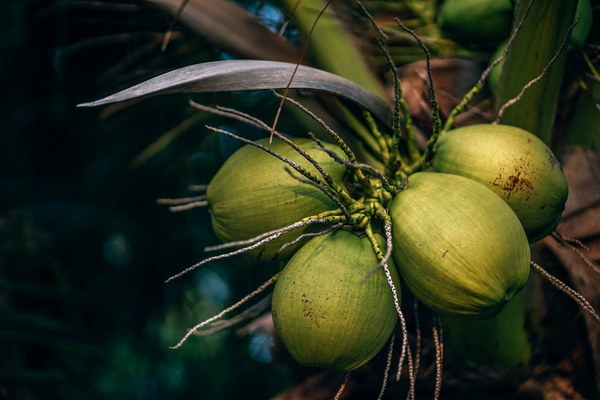Unveiling the Best Aquatic Plant for Lung Health Discover the LungFriendly Wonder of Nature
In the realm of natural remedies and holistic health, the quest for ways to boost lung function has become increasingly popular. While we often turn to medications, exercise, and healthy diets, there is another unconventional method that has gained attention – the use of aquatic plants. Among the myriad of water-dwelling flora, one particular plant has emerged as the best aquatic plant for lung health. Let's delve into the fascinating world of aquatic plants and uncover the lung-friendly wonder that can transform your well-being.
The aquatic plant in question is none other than the humble Duckweed (Lemna minor). Duckweed is a tiny, free-floating plant that can be found in various water bodies worldwide, including ponds, lakes, and slow-moving streams. This remarkable plant has been gaining recognition for its potential health benefits, particularly its ability to improve lung function.
Duckweed is renowned for its ability to absorb carbon dioxide (CO2) from the water, convert it into oxygen, and release it into the atmosphere. This process is crucial for maintaining a healthy balance of oxygen and carbon dioxide in our environment, which in turn can have a positive impact on lung health. Here's how:
1. Improved Air Quality: Duckweed's ability to remove CO2 from the water and produce oxygen can lead to cleaner air. This is particularly beneficial for individuals with respiratory conditions, such as asthma or chronic obstructive pulmonary disease (COPD), as it can help reduce the symptoms associated with poor air quality.

2. Enhanced Lung Function: By improving the overall air quality, duckweed can contribute to better lung function. This is especially beneficial for people who spend a significant amount of time indoors, such as office workers or those living in urban areas with high pollution levels.
3. Natural Remedy for Respiratory Conditions: Duckweed has been used traditionally to treat respiratory issues. Its anti-inflammatory properties can help reduce inflammation in the lungs, making it an excellent natural remedy for those suffering from respiratory conditions.
4. Aquatic Ecosystem Health: Duckweed plays a vital role in maintaining the health of aquatic ecosystems. By removing excess nutrients from the water, it helps prevent the growth of harmful algal blooms and maintains a balanced ecosystem, which can have a positive impact on the overall air quality.
5. Sustainable and Eco-Friendly: Duckweed is an environmentally friendly plant that requires minimal resources to grow. It can be cultivated in small spaces and does not compete with other plants or animals for nutrients. This makes it an excellent choice for those looking to contribute to a greener planet.
To incorporate duckweed into your lung health routine, you can consider the following suggestions:
1. Grow Duckweed at Home: Set up a small pond or water feature in your garden and plant some duckweed. This will not only improve the air quality around your home but also provide a unique and visually appealing addition to your garden.
2. Use Duckweed in Aquaponics: Aquaponics is a sustainable farming system that combines aquaculture (raising fish in tanks) with hydroponics (growing plants in water). By incorporating duckweed into your aquaponics system, you can help improve the oxygen levels in the water while also providing a natural food source for the fish.
3. Support Local Initiatives: Look for local projects or organizations that promote the cultivation of duckweed. By supporting these initiatives, you can contribute to a larger effort to improve lung health and protect the environment.
In conclusion, the humble duckweed has emerged as the best aquatic plant for lung health. Its ability to improve air quality, enhance lung function, and promote a healthy aquatic ecosystem makes it an excellent choice for anyone looking to improve their respiratory health. So, why not embrace the lung-friendly wonder of nature and start reaping the benefits of this remarkable plant today?









